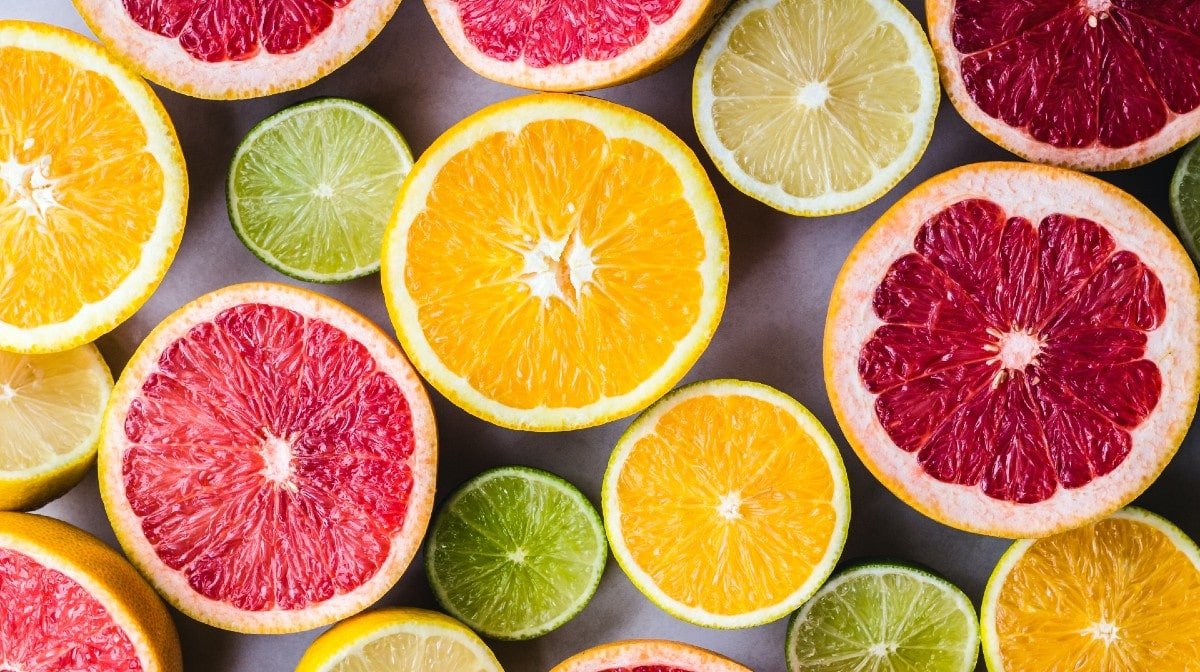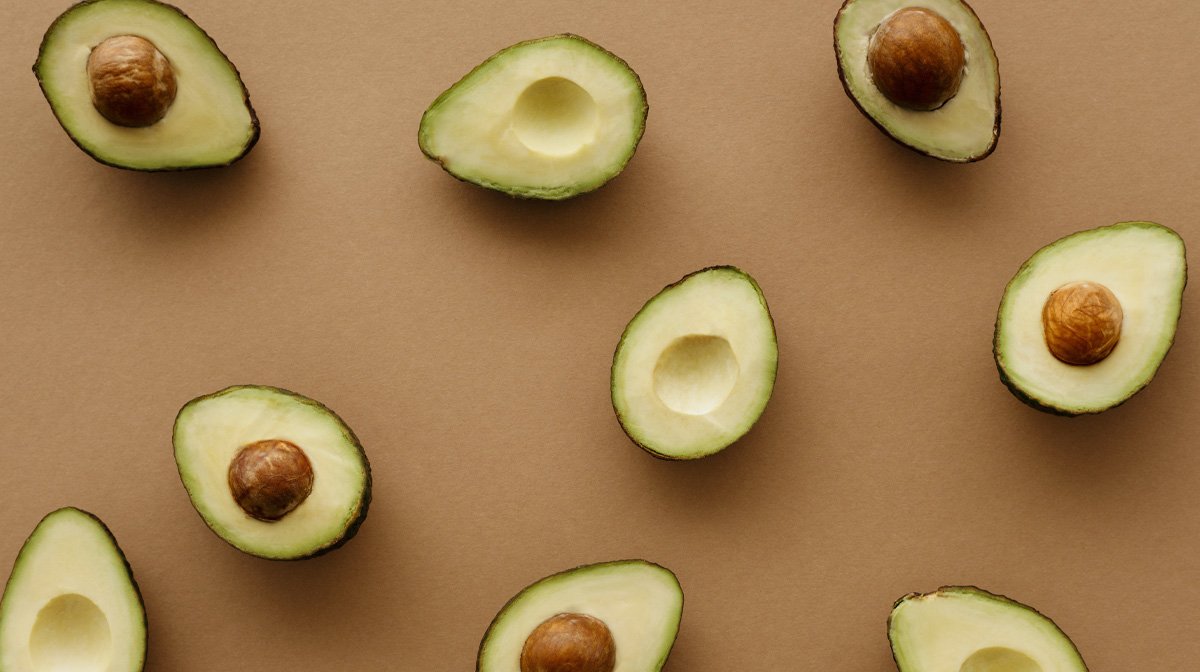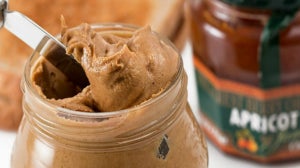

A strong, healthy immune system is always important, but especially over the winter months, when colds, flus and other bugs are flying about. Here are seven of the best things you can do during the colder months to help keep illness at bay.
Jump to:Tips for Supporting Your Immune System
Maintain a healthy and balanced diet
Supporting your immune system starts with the food on your plate. You want to eat a varied diet full of vitamins and minerals (we’ll delve into specifics later on) and a well-rounded balance of the essential macronutrients — protein, carbohydrates and fats.
Protein, in particular, plays an important role. Evidence shows that a deficiency of amino acids may be connected to impaired immune function and can increase the susceptibility of infections.1 Protein also regulates T-cells, the white blood cells essential for fighting infections.2
If you struggle to meet your protein goals, check out these high-protein recipes for some inspiration.
Stay hydrated
Water is essential for many physiological functions in the body, including the immune system. It is required for the transport of nutrients throughout the body including the movement of immune cells and the removal of waste products.
If you struggle to drink enough water, worry not. Fruit and vegetables contain water. And tea and coffee count, too. You can also try some of these nutritious immune-supporting smoothie recipes.

How Much Water Should I Drink In A Day?
Hydration reminder incoming...
Don’t sacrifice sleep
Good sleep is linked to many positive health outcomes, and this includes the ability to fend off illness. Poor sleep has been associated with changes to the innate and adaptive immune responses.3 with one study finding that those who had less than seven hours of sleep were almost three times more likely to develop a cold than those who got eight hours or more.4 So, make sure to get in plenty of sleep every night.

Be mindful of your alcohol consumption
The effects of excessive consumption of alcohol on the immune system are well established, but you don’t have to be a regular or heavy drinker for alcohol to have an impact on your immune health, as studies have shown that a single drinking session can impact the immune system for up to 24 hours.5
To support your immune health over the winter months, try alternating alcoholic drinks with non-alcoholic drinks to reduce your overall intake or try to have several alcohol-free days per week.6

How Does Alcohol Impact My Performance & Recovery?
Can you hack it after a heavy night?
Keep up your exercise routine
It’s not uncommon to lack motivation to exercise when the days are short, dark and cold, regular exercise is not only great for your mental health, but it could also reduce the likelihood of catching a cold as well as the intensity of symptoms.7
Supplements
Vitamin B6
Vitamin B6, also known as pyridoxine, is important for the production of immune cells and antibodies, with a deficiency of this vitamin linked with a reduced immune response and increased susceptibility to viral infections.8,9,10
Vitamin B6 is found in many foods including poultry, pork, soya, peanuts, oats, milk and some fortified breakfast cereals.
Vitamin C
Vitamin C supports immune health as it helps to regulate oxidative stress and inflammation in the body. Vitamin C deficiency has been associated with an increased risk of infection.11
Evidence has illustrated that regular supplementation of vitamin C can reduce the duration of colds and considering that vitamin C is a water-soluble vitamin, meaning excess amounts of it are excreted from the body, it is considered safe as a supplement.11,12,13
You can get vitamin C from many fruits and vegetables, including oranges and other citrus fruits, peppers, kiwis, berries and tomatoes.

20 Foods Rich In Vitamin C: Benefits And Sources (Besides Oranges)
Boost energy and brighten skin with these foods.
Vitamin D
Vitamin D is well known to support bone health as it enhances the absorption of calcium. However, vitamin D has many important roles related to the immune system too, with a number of studies illustrating that vitamin D supplementation can reduce the risk of contracting colds.14
In the UK and Ireland, it’s recommended that a daily vitamin D supplement of 10ug is taken from October to March due to the limited sunshine during this time.
Vitamin D can be sourced from oily fish like salmon and trout, in fortified breakfast cereals, and certain dairy and plant milks (some organic brands don’t fortify their products so read the labels), and, of course, from sunshine.

Vitamin E
Vitamin E is a fat-soluble vitamin that also acts as an antioxidant. Interestingly, it is found in higher concentrations in immune cells compared to other cells within the body and is known to play a key role in the regulation of the immune system.15
Deficiencies of vitamin E are rare but it has been demonstrated that this can affect the immune system and inflammation levels within the body, which can affect susceptibility to bacterial and viral infection, particularly in older individuals.15,16,17,18
Vitamin E can be found in sunflower seeds and oil, almonds, peanuts and nut butters, and in vegetables such as avocado, bell pepper and pumpkin.
Zinc
Zinc is a mineral that is vital for the function of the immune system and for wound healing. It is important for the production and maintenance of cells including immune cells such as monocytes, macrophages and natural killer cells.19
Zinc supplementation has been linked with a reduced duration of colds.20 One study found that supplementing with over 75mg of zinc once a day within 24 hours of the onset of cold symptoms significantly reduced the duration of the cold.21
Zinc can be found in red meat, eggs, nuts, seeds, lentils and whole grains.
Magnesium
A review published early in 2023 found that magnesium is essential for optimal immune function and supporting the regulation of inflammation within the body with deficiencies of magnesium leading to temporary or long-term immune dysfunction.22
A balanced diet usually provides sufficient amounts of magnesium and excessive supplementation has been linked to negative impacts on immunity.
Magnesium is found in green leafy vegetables like spinach and in nuts, seeds, legumes and whole grains.

The Health Benefits Of Magnesium & The Best Supplements To Take
Nutritionist reveals all.
Take home message
If you want to give yourself the best chance of fighting away winter bugs, try your best to stay active, get good sleep, and eat a rounded diet, making sure to get all the essential minerals and vitamins.
Remember that supplements aren't intended to replace real food, so consider your diet first and how you can get more nutrients in.
Our articles should be used for informational and educational purposes only and are not intended to be taken as medical advice. If you're concerned, consult a health professional before taking dietary supplements or introducing any major changes to your diet.
- Li, P., Yin, Y. L., Li, D., Kim, S. W., & Wu, G. (2007). Amino acids and immune function. The British journal of nutrition, 98(2), 237–252. https://doi.org/10.1017/S000711450769936X
- Kleijn, M., & Proud, C. G. (2002). The regulation of protein synthesis and translation factors by CD3 and CD28 in human primary T lymphocytes. BMC biochemistry, 3, 11. https://doi.org/10.1186/1471-2091-3-11
- Garbarino, S., Lanteri, P., Bragazzi, N. L., Magnavita, N., & Scoditti, E. (2021). Role of sleep deprivation in immune-related disease risk and outcomes. Communications biology, 4(1), 1304. https://doi.org/10.1038/s42003-021-02825-4
- Cohen, S., Doyle, W. J., Alper, C. M., Janicki-Deverts, D., & Turner, R. B. (2009). Sleep habits and susceptibility to the common cold. Archives of internal medicine, 169(1), 62–67. https://doi.org/10.1001/archinternmed.2008.505
- National Institute on Alcohol Abuse and Alcoholism. Alcohol Effects on Health. Retrieved from: https://www.niaaa.nih.gov/alcohols-effects-health/alcohols-effects-body
- British Dietetic Association. Food Fact Sheet: Alcohol. Retrieved from: https://www.bda.uk.com/
- da Silveira, M. P., da Silva Fagundes, K. K., Bizuti, M. R., Starck, É., Rossi, R. C., & de Resende E Silva, D. T. (2021). Physical exercise as a tool to help the immune system against COVID-19: an integrative review of the current literature. Clinical and experimental medicine, 21(1), 15–28. https://doi.org/10.1007/s10238-020-00650-3
- Qian, B., Shen, S., Zhang, J., & Jing, P. (2017). Effects of Vitamin B6 Deficiency on the Composition and Functional Potential of T Cell Populations. Journal of immunology research, 2017, 2197975. https://doi.org/10.1155/2017/2197975
- Stach, K., Stach, W., & Augoff, K. (2021). Vitamin B6 in Health and Disease. Nutrients, 13(9), 3229. https://doi.org/10.3390/nu13093229
- Kumrungsee, T., Zhang, P., Chartkul, M., Yanaka, N., & Kato, N. (2020). Potential Role of Vitamin B6 in Ameliorating the Severity of COVID-19 and Its Complications. Frontiers in nutrition, 7, 562051. https://doi.org/10.3389/fnut.2020.562051
- Hemilä H, Chalker E. Vitamin C for preventing and treating the common cold. Cochrane Database of Systematic Reviews 2013, Issue 1. Art. No.: CD000980. DOI: 10.1002/14651858.CD000980.pub4
- Cerullo G, Negro M, Parimbelli M, et al. The Long History of Vitamin C: From Prevention of the Common Cold to Potential Aid in the Treatment of COVID-19. Front Immunol. 2020;11:574029. Published 2020 Oct 28. doi:10.3389/fimmu.2020.574029
- NHS. Vitamin C. Retrieved from: https://www.nhs.uk/conditions/vitamins-and-minerals/vitamin-c/#:~:text=Social%20Care%20advise%3F-,You%20should%20be%20able%20to%20get%20all%20the%20vitamin%20C,unlikely%20to%20cause%20any%20harm
- Martineau AR, Jolliffe DA, Hooper RL, et al. Vitamin D supplementation to prevent acute respiratory tract infections: systematic review and meta-analysis of individual participant data. BMJ. 2017;356:i6583. Published 2017 Feb 15. doi:10.1136/bmj.i6583
- Lewis, E. D., Meydani, S. N., & Wu, D. (2019). Regulatory role of vitamin E in the immune system and inflammation. IUBMB life, 71(4), 487–494. https://doi.org/10.1002/iub.1976
- Meydani, S. N., Lewis, E. D., & Wu, D. (2018). Perspective: should vitamin E recommendations for older adults be increased?. Advances in Nutrition, 9(5), 533-543.
- Wu, D., & Meydani, S. N. (2008). Age-associated changes in immune and inflammatory responses: impact of vitamin E intervention. Journal of Leucocyte Biology, 84(4), 900-914.
- Pae, M., & Wu, D. (2017). Nutritional modulation of age-related changes in the immune system and risk of infection. Nutrition research, 41, 14-35.
- Wessels, I., Maywald, M., & Rink, L. (2017). Zinc as a Gatekeeper of Immune Function. Nutrients, 9(12), 1286. https://doi.org/10.3390/nu9121286
- Hunter J, Arentz S, Goldenberg J, et al. Zinc for the prevention or treatment of acute viral respiratory tract infections in adults: a rapid systematic review and meta-analysis of randomised controlled trials. BMJ Open. 2021;11(11):e047474. Published 2021 Nov 2. doi:10.1136/bmjopen-2020-047474
- Singh M, Das RR. Zinc for the common cold. Cochrane Database Syst Rev. 2013;(6):CD001364. Published 2013 Jun 18. doi:10.1002/14651858.CD001364.pub4
- Ashique, S., Kumar, S., Hussain, A., Mishra, N., Garg, A., Gowda, B. H. J., Farid, A., Gupta, G., Dua, K., & Taghizadeh-Hesary, F. (2023). A narrative review on the role of magnesium in immune regulation, inflammation, infectious diseases, and cancer. Journal of health, population, and nutrition, 42(1), 74. https://doi.org/10.1186/s41043-023-00423-0









